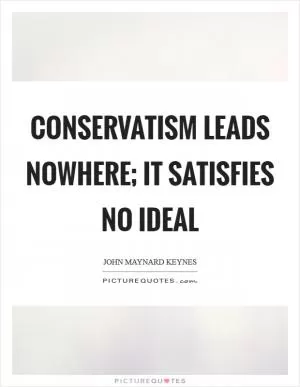Worldly wisdom teaches that it is better for reputation to fail conventionally then to succeed unconventionally

Worldly wisdom teaches that it is better for reputation to fail conventionally then to succeed unconventionally
John Maynard Keynes, the renowned economist and thinker, was a man who defied conventional wisdom in many aspects of his life and work. He was a trailblazer in the field of economics, challenging established theories and proposing new ideas that revolutionized the way we think about the economy. In his personal life, he was known for his unconventional lifestyle and disregard for societal norms.The quote "Worldly wisdom teaches that it is better for reputation to fail conventionally than to succeed unconventionally" is often attributed to Keynes, although its exact origin is uncertain. This quote encapsulates the idea that society values conformity and tradition over innovation and risk-taking. It suggests that it is safer to follow the crowd and adhere to established norms, even if it means sacrificing potential success and progress.
Keynes himself was no stranger to controversy and criticism. His ideas, such as government intervention in the economy to stimulate growth and the rejection of the gold standard, were considered radical and unorthodox at the time. However, Keynes was undeterred by the naysayers and continued to champion his beliefs, eventually gaining widespread recognition and influence.
Keynes' life and work exemplify the idea that true greatness often comes from challenging the status quo and thinking outside the box. He was not afraid to fail unconventionally in pursuit of his goals, and his legacy continues to inspire generations of economists and thinkers to question established norms and seek new solutions to complex problems.












 Friendship Quotes
Friendship Quotes Love Quotes
Love Quotes Life Quotes
Life Quotes Funny Quotes
Funny Quotes Motivational Quotes
Motivational Quotes Inspirational Quotes
Inspirational Quotes